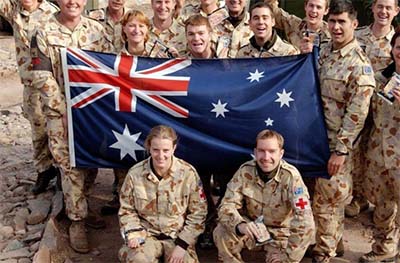Addiction and PTSD In Veterans
Veterans returning home from military service face several challenges when adjusting back to civilian life. The transition is a significant lifestyle change that can be overwhelming and stressful. Often, we think of military personnel affected by PTSD as those who participate in dangerous combat; however, any member of the defence force can be exposed to traumatic events during their service.
Some of the issues defence force members face include losing their sense of identity and belonging, trouble adapting to lack of structure and discipline, dealing with traumas such as serious injury, witnessing a peer’s death, or sexual assault. These traumatic events can lead to co-occurring disorders which can include PTSD and substance abuse disorders.
Veterans and PTSD
Many veterans riddled with addiction are unaware they have underlying PTSD, and their use of substances can be a way to cope with their symptoms. PTSD affects the mind and body in unimaginable ways and can be debilitating.
“Posttraumatic stress disorder (PTSD) is a psychiatric disorder that may occur in people who have experienced or witnessed a traumatic event such as a natural disaster, a serious accident, a terrorist act, war, or rape or who have been threatened with death, sexual violence or serious injury.”
Veterans who have returned home from their service may find everyday life triggering or anything that is a reminder of the traumatic incident. Often, we think trauma affects only the mind and our emotions; however, symptoms can manifest physically also. In a 2017 study, 5,826 United States veterans were surveyed, resulting in a staggering 12.9% being diagnosed with PTSD.
Common symptoms of PTSD can include:
- Re-occurring flashbacks in the form of intrusive thoughts and images
- Nightmares
- Inability to regulate overwhelming emotions
- Easily startled
- Anger and aggression
- Disassociation
- Difficulty concentrating
- Familial and social isolation
- Feeling unsafe and distrusting of the world
- Persistent feelings of shame and guilt
- Aches and pains
Consequently, many veterans turn to drugs and alcohol to escape the harshness, anguish, and confusion attributed to PTSD.
Risk Factors for Developing PTSD and Substance Use Disorders Amongst Service Members
Not all service personnel will be affected by traumatic events in active duty. Many exposed to dangerous, life-threatening situations have the resiliency to re-adjust to civilian life with the support of family, friends and mental health services.
Others may not be so lucky. Vulnerabilities such as past trauma, drug and alcohol use, limited social support and history of mental illness are just some of the risk factors which can leave individuals predisposed to PTSD and substance use disorders.
Studies have also shown genetics may make specific individuals more likely to develop co-occurring disorders than others. A survey by Molecular Psychiatry stated, “29 per cent of a group of American and European women, who had PTSD, had a genetic risk factor for mental illness.”
It also concluded that “those people who had other mental illnesses were at a higher risk for developing PTSD after exposure to trauma.”

Possible Causes of PTSD in the Military
There are several possible causes of PTSD in the military, and unfortunately, some are unavoidable. Some possible causes can include:
- Combat trauma: Witnessing the death of their service peers and civilians, having their life regularly threatened, injuries and seeing dead bodies.
- Sexual harassment/abuse: Sexual assault can affect individuals of all genders, ages and ranks. The topic of sexual harassment and abuse in the military is often left unspoken. Studies show both men and women can be the target of sexual violence. Most of the time, victims of this type of violence refuse to speak out in fear of losing their jobs or suffering retaliation. As a result, cases concerning sexual violence are underreported, making it difficult to determine the prevalence of sexual abuse amongst defence force personnel. An American study reported “approximately 6.2% of active-duty women and 0.7% of active-duty men ages 17-24 experiences sexual assault in 2018.”
- Training: Studies show that simply participating in defence force training can potentially cause high levels of stress and anxiety in individuals susceptible to these symptoms. Strict training regimes, being controlled from the moment you wake up to the moment you go to sleep, verbal, mental and physical abuse can either make or break people in training.
The Relationship Between Addiction and PTSD
Although several veterans who come back from service eventually overcome their traumas through therapy and support groups, others have extreme difficulty recovering from their experiences. A study focused on patients seeking treatment for PTSD found “60%-80% of these patients had concurrent diagnoses of substance abuse, alcohol abuse, or dependence.”
Veterans often try to deal with their trauma symptoms by abusing alcohol and drugs and other process addictions such as gambling and sex. Even if an individual did not have addiction issues before joining the defence force, they are more likely to begin abusing substances during and after service.
Some factors which can trigger an individual becoming dependent on drugs and alcohol. These factors can include:
- Being prescribed opioid painkillers for chronic pain and injuries
- Being prescribed benzodiazepines to treat PTSD symptoms
- Inability to cope with re-occurring PTSD symptoms
- Unable to re-adjust to civilian life and maintain stable work
- Relationship breakdown, death or divorce
- Insomnia and nightmares
- Fear and paranoia
- Family stress and pressure
- Financial hardship
- Lack of interest in hobbies and recreational activities
- Isolation
- Survivors guilt and shame
Common Addictions Amongst Veterans
- Alcohol: Studies show veterans are more prone to binge drinking and alcoholism. Alcohol abuse often begins during active duty to connect and pass the time between service duties and can continue long after military service has ended. The Department of Veteran “affairs estimates around one-third of veterans drink at risky levels.”
- Prescription medication: Veterans suffering PTSD or chronic pain, or injury are more likely to be prescribed anxiety medications and opioids, most of which are highly addictive. While individuals might begin taking these medications as prescribed, once recreational misuse increases, so do the risks of developing a full-blown addiction.
- Illicit drug use: Illicit drug use is also highly prevalent and concerning among veterans. According to the NCBI, studies show “marijuana accounts for the vast majority of illicit drug use among veterans (3.5% report marijuana use, 1.7% report use of drugs other than marijuana in one month).”
Recovery Is Possible
There are no doubts that veterans have experienced things the general public would never have known possible. Many of us may never understand their exhaustive efforts or relate to their painful experiences. Therefore, it is imperative to provide veterans with a safe and compassionate environment that understands the interrelationship between military service, PTSD, and addiction.
For long-term recovery to begin and stick, a holistic treatment program encompasses the individual as a whole through the use of different therapeutic techniques, mindfulness exercises and co-curricular activities.
The Department of Veterans Affairs provides former service members with treatment options for mental health and substance use disorders if you are a Gold or White DVA Health Cardholder. Thankfully Seasons Bali is now a DVA approved treatment provider which may make you eligible for a 90-day program with us, at no cost.
Seasons Bali can offer the environment you need to heal and recover from your trauma and addiction. Please reach out to speak with a lovely member of our client liaison team. All our conversations remain confidential, and the anonymity of our clients remains our number one priority.


